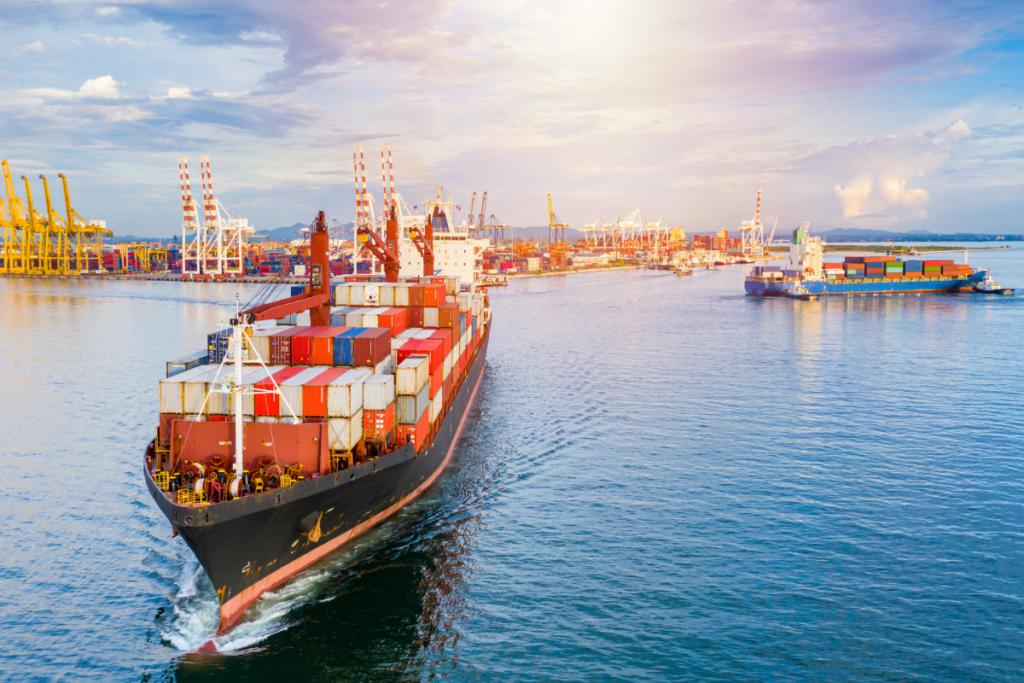Most international cargo shipments use shipping containers, especially in maritime. These containers are available in standard sizes and can be moved from one transportation to another without being opened.
Standardised containers have changed rail, road, and ship transit in the shipping and transportation industry. Therefore, you should consider the products being transported and the loading and unloading procedures. This article will cover nine key shipping container considerations to assist you to overcome any shipment issues you will come across in your journey.
#1 How do I pick the right shipping container?
Containers travel extensively worldwide, and they adhere to internationally agreed-upon standard sizes, which enables shipping and logistics businesses to work with each variety and quickly calculate shipping costs. It is critical to select the appropriate container size for all your shipments. If the unit is insufficiently large to hold your products, you will need to make two shipping runs. You may discover that the venture is no longer profitable by increasing transportation costs. Moreover, when shipping storage containers, you may want to consider the amount of cargo transported. It is also essential to take note of the number of objects, the size of the items you’re transferring, and the fragility of the things.

#2 What are the things I can ship?
The beauty of shipping containers is you can utilise the entirety of the intermodal container for your shipments. If you’re planning to transport a yacht in its entirety, you may want to consider a 40′ container or bigger. Meanwhile, if you’re exporting a motorcycle, then a 20′ container may be sufficient. However, you do not want to utilise a partially packed container. It would be best to maximise every square foot of container space to guarantee that you can move the maximum amount of goods without incurring additional costs for underutilised floor surface area.
#3 What are the advantages of utilising shipping containers?
Shipping containers offer a plethora of benefits to both the exporter and the buyer. One of the benefits of shipping containers is the ease of loading and unloading them through mechanical equipment, cranes, and automated systems. This is a lot more efficient and speedier operation than dealing with many pieces of oddly shaped shipments or goods.
#4 Do shipping containers have drawbacks?
While shipping containers have many advantages, they also have drawbacks. Constraints on-site are one of them. Containers take up a lot of terminal space; thus, many intermodal terminals have been relocated to the suburbs. Stacking is another concern with shipping containers. Larger containerships are causing drought concerns at the port. The complexity of container arrangements on the ground and in transit necessitates periodic restacking, adding costs and time for terminal operators.
#5 Is a certified shipping container required?
Each container’s front door is marked with a Container Safety Convention (CSC) plate. This is somewhat similar to a vehicle inspection sticker. Furthermore, containers must carry a valid CSC plate to be shipped aboard a cargo container ship. A professional inspector must inspect the container to ensure the plate is accurate. New containers are frequently certified. It is possible to re-inspect a used container before shipment. However, inspectors may be costly and difficult to locate unless you are near a port city.
#6 Who is responsible for container shipping?
Generally, the location of a container dictates who will send it. You will need to call a transportation company if you ship a container across the country. Numerous containers can be loaded onto a flatbed trailer and driven to their final destination. Once you’ve figured out the logistics of transporting the container, most of the work is done.
#7 How do I select the appropriate mode of transportation?
A shipping container is a metal box structure that can be swiftly and efficiently transferred between trucks, railcars, ocean-going vessels, and other modes of transport. All shipping containers are built to the same standards and are designed to accommodate specific chassis, railcars, and different modes of transportation.
A container chassis is a lightweight vehicle with an easy-to-maintain design and structure. They are a popular means of road transport because they are ideal for usage at a railway yard or freight terminal. Moreover, containers are tracked via unique codes, internet-connected gadgets, and, as technology progresses, automated systems. As a result, supply chain managers are always aware of the whereabouts of particular commodities across the supply chain.
#8 How can I load and unload containers on vehicles
The success of container transportation by road is not contingent on any one part of the operation. It incorporates all of the variables contributing to the process’s definition at each stage. To begin, you must ensure that the container is loaded and unloaded in accordance with all applicable safety laws and regulations.
Ascertain that the container is loaded and unloaded following the prescribed safety rules. Don’t forget to load and unload ultra-high containers with ultra-high slings to avoid mishaps that could damage the cargo. Most crucial, avoid rapid steering during loading/unloading to maximise safety throughout these operations.
#9 How to properly pack shipping containers?
Moving cargo containers without properly packing them is hazardous. Untrained staff can expose items to damage, which can be costly. Additionally, packing and cushioning items in shipping containers helps keep them safe. When shipping firms pick up your products, they expect them to be ready. Do not hesitate to contact professionals if you need help increasing speed and efficiency. Also, you might pay demurrage costs if shipping containers are not loaded or unloaded swiftly. Getting in touch with a skilled logistics business can help you reduce shipment costs.
Contact Reef Group Now!
Reef Group are Bunbury’s maritime container shipping specialists. With a fleet of container transport vehicles capable of transporting a variety of container sizes and weights, we are the container transport in Bunbury partner you can rely on for safe and on-time container delivery.
